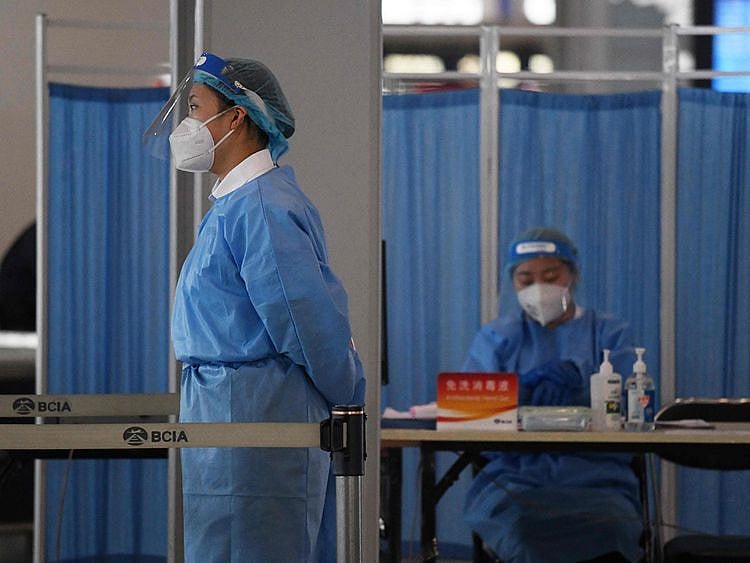Also In This Package
COVID-19: As Wuhan reopens, people begin to venture out
Inside: China's new cluster of COVID-19 infections
Look: Students wear wings to maintain social distancing
Maharashtra's COVID-19 cases outnumber China's
COVID-19: Happiness after China eases restrictions
Dozens killed as China hit by floods and rainstorms
China is offering coronavirus vaccines under development to workers at state-owned companies in Beijing as the capital city experiences the nation's worse flare-up since Wuhan.
The government had earlier offered shots developed by China National Biotec Group Co., or CNBG, to state-run companies' workers traveling overseas, Bloomberg reported last week. It's now expanding that program to those firms' employees living in Beijing districts currently under alert, or working in high-risk areas such as airports, according to people familiar with the matter who asked not to be identified as the offer hasn't been made public.
The expanded voluntary inoculation may offer solace to workers facing growing risk as a potential second wave emerges in Beijing. It also puts to test CNBG's experimental shots amid a global race to find a successful vaccine to the deadly pathogen.
The new cluster, which emerged from Beijing's largest wholesale fruit and vegetable market, has grown to more than 150 infections in a week and spread to at least four other Chinese provinces.
The State-owned Assets Supervision and Administration Commission, which oversees China's government-run companies, didn't immediately respond to a Bloomberg query. CNBG didn't reply to calls and a WeChat message seeking comment.
Besides being potentially protected against the virus, those volunteering will also help generate data on the shots' efficacy against the novel pathogen that has sickened over 8.3 million people and killed more than 448,000 worldwide.
It isn't yet known whether CNBG's vaccines, which employ a dead strain of the novel coronavirus to elicit an immune response from the body, can prevent the infection.
Final Hurdle
CNBG said that one of the two experimental shots has been found to be generally safe and able to generate neutralizing antibodies, which could latch onto the virus to prevent it from invading cells. Their ability to prevent infection will only be clear in Phase III trials - the final hurdle to clear for securing marketing approval - in which thousands of people take the shot to see how effective it is in an active outbreak environment.
Chinese developers were previously concerned that they could not effectively conduct Phase III trials within the country as cases had seemingly dwindled nationwide. But if the resurgence of infections in Beijing isn't brought under control, it could prompt researchers to consider the possibility of trials at home.
It's uncertain how many employees of state-run firms traveling overseas or those in Beijing have taken up the offer, and whether they will be tracked for adverse reactions and their immune response.
Sign up for the Daily Briefing
Get the latest news and updates straight to your inbox
Network Links
GN StoreDownload our app
© Al Nisr Publishing LLC 2026. All rights reserved.
